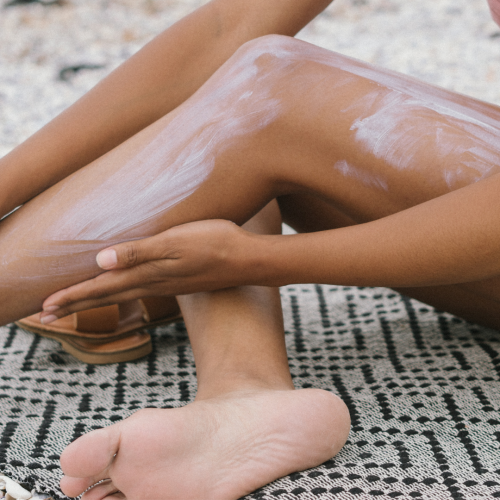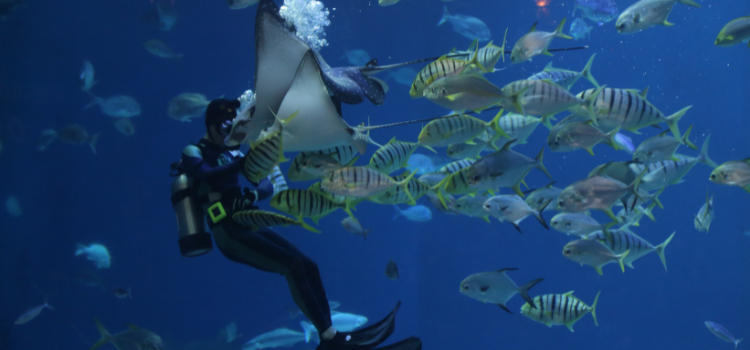Outer Banks Reefs!
Did you know that there are reefs off the coast of the Outer Banks? Artificial reefs and oyster sanctuaries are in our beautiful water maintaining marine life and keeping our ocean healthy. With our amazing water comes our amazing beaches where we have vacationers come from all over to enjoy! It is so important for you to wear sun protectant when you head to be beach, but it is just as important for it to be reef friendly!
With a nickname like "The Graveyard of the Atlantic", it's a known fact that the Outer Banks has had several shipwrecks. These underwater machines serve a purpose far greater than just super amazing snorkeling finds - they have become artificial reefs providing protection to our fish! Because of these wrecks, our fish have been able to grow their population and allow our fishers to have successful catches! It's so important to make regeneration a priority to keep our ecosystem going strong.
North Carolina is home to many reefs, and while these reefs are manmade, the life that grows on them is very much alive! While some are the remains of ship wrecks from long ago, newer artificial reefs were planned efforts to better the ecosystem. The algae and coral that live on these structures provide a wonderful feeding ground for the fish who make it their new home.
Both natural coral reefs and artificial reefs need to be protected. There has been a lot of work done to keep the marine life prosperous by different groups here in the OBX who are committed to keeping our ocean life around for many years to come! These efforts have been incredible, and we can help out by staying informed on which sunscreens (and what ingredients) are safe to use! What we spray or rub into our skin gets washed off when we go for a swim, and with over a million tourists visiting yearly, these toxins add up. As you get ready to head to the beach, make sure you pack these things to keep you and our fish happy!
What to Look For

As more testing is being done to see which sunscreens are reef-friendly, we are able to see what we should and shouldn’t be wearing in the water. There are so many different sunscreens to choose from, so how do you know which ones are safe for the coral reefs? Sunscreen is tricky! Many of them contain a mix of good and bad, making it hard to find the perfect one. The most important ingredients to avoid are oxybenzone and octinoxate – both of which cause reef damage. While the reefs of North Carolina are artificial to start, algae and other microorganisms begins to grow on these underwater structures and are affected by the toxins. Choosing a sunscreen that doesn’t have either of these chemicals is a great start to limiting the damage.
In truth, the safest thing for marine life is to wear UPF clothing, but we understand that some people prefer a sunscreen. When looking for safe ingredients, it really comes down to two non-nanosized ingredients: zinc oxide and titanium dioxide. These ingredients will be present in mineral sunscreens. Keep your eyes peeled for other not-so-good ingredients combined with them, like Homosalate, PABA, Octocrylene, and parabens.
Which Sunscreen Should I Bring?
Which ingredients contain the good stuff? There are some mineral sunscreens that are wonderful options! The highest rated sunscreen is Thinksport SPF 50 Sunscreen. This non-nanosized zinc oxide sunscreen is safe for you and the water! Ingredients in this product protect from both UVA and UVB rays, making it an ideal sunscreen for everyone! If you love the convenience of a spray sunscreen, BaBo Botanicals makes an incredible zinc sunscreen that is both water and sweat resistant, keeping your family safe from the sun’s rays! This spray is easy to use and made with all the right stuff and none of the bad! Both of these are guilt-free sunscreens and make a great addition to your beach bag!
There are lots of sunscreens out there that claim to be reef-friendly, but be sure to read the label! Many of these protectants emphasize their avoidance of one chemical to only pack it with other not-so-good ones. Regulation has been put in place in areas of Florida and Hawaii and until we see that become enforced everywhere, we appreciate your help as we work towards keeping our fish healthy and our ocean safe. Next time you’re planning a trip to the Outer Banks, make sure to add an eco-friendly bottle of sunscreen to your beach packing list! Browse our wide selection of vacation rental homes for your next getaway!




